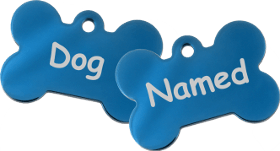1700s Dog Names - Page 2
Updated: July 01, 2024
Welcome to a unique collection of canine monikers deeply rooted in history. This distinct assortment of appellations harks back to the 18th century, a time of great change, innovation, and exploration. These names, once popular in a world of petticoats, powdered wigs, and quill pens, offer a charming blend of tradition and nostalgia that can provide a rich character to your beloved pet.
Take a journey back in time to an era of elegance and grandeur, when names were more than just identifiers, but held deep meaning and significance. The names you'll discover here are drawn from historical records, literature, and famous personalities of the era. They offer a unique twist to the usual pet names, providing a sense of dignity and regality to your furry friend. From classic to quaint, these names are sure to add a touch of the old world charm to your modern pet parenting experience.
So, whether you're a history enthusiast, a lover of classic literature, or simply looking for a name with a bit more character and depth, this list will not disappoint. Get ready to explore a treasure trove of timeless names that your canine companion will wear with pride.
| Name | Reason to Choose |
|---|---|
| Ezekiel | Ezekiel is a biblical name often used during the 1700s, making it a fitting choice for a dog in that era |
| Felicity | A virtue name from the Puritan tradition |
| Ferdinand | Ferdinand was a popular name among royalty in the 18th century |
| Fidelia | Fidelia, a name meaning faithful, would have been a favored choice for a dog in the 1700s |
| Fitz | Derived from old Norman names |
| Florence | A popular name in the 1700s, it was often used to honor the city of Florence |
| Geoffrey | A noble name that was preferred in the 18th century |
| Gerald | Reflects the Germanic influence of the period |
| Gideon | Biblical names were favored |
| Gilbert | Gilbert was a common name in the 1700s, making it suitable for a dog of that era |
| Godfrey | Godfrey, a popular name in the 1700s, would be a fitting name for a dog of this period |
| Gregory | A common name during the 1700s, mostly in honor of religious figures |
| Harriet | A popular female name in the 18th century |
| Helena | This name was common amongst females in the 1700s |
| Hermione | Hermione, a name from Shakespeare's The Winter's Tale, would be apt for a dog in the 1700s |
| Hester | A name with strong Biblical roots |
| Horace | Reflects the love for ancient Roman culture |
| Humphrey | Reflects the British influence of the period |
| Ignatius | This name was selected frequently in the 1700s, often for religious reasons |
| Inigo | Inigo, a unique name often used in the 1700s, would be appropriate for a dog of this era |
| Iris | Iris, a name associated with nature, would have been a favored choice for a dog in the 1700s |
| Isaac | Old Testament names were popular during the era |
| Ivan | This name was frequently used in the 1700s, often in honor of Russian royalty |
| Jasper | This gemstone name was quite fashionable in the 1700s |
| Jed | Short, simple names like Jed were common in the 1700s, making it a suitable name for a dog of that time |
| Jedediah | Biblical names were in vogue |
| Jeremiah | Biblical names were favored |
| Jethro | Biblical names like Jethro were popular in the 1700s, making it a fitting name for a dog of this time |
| Juliet | This name gained popularity in the 1700s due to the Shakespearean play, Romeo and Juliet |
| Kendrick | An aristocratic-sounding name that was preferred in the 18th century |
|
Suggest:
|
Submitted!
|
| 1 2 3 4 5 | |
Royal Names
| Name | Description |
|---|---|
| Adelaide | Queen Adelaide was the wife of King William IV of the UK |
| Albert | The name of Queen Victoria’s Prince Consort |
| Alexandra | This name has been common among European queens |
| Arthur | Legendary King Arthur's name has been used by the British royal family |
| Augustus | This name was frequently used among Roman emperors |
| Beatrice | Princess Beatrice was Queen Victoria's youngest daughter |
| Catherine | Catherine the Great was a renowned Russian Empress |
| Charles | Numerous kings throughout history have carried this name |
| Edward | This name was common in the British monarchy |
| Eleanor | It's a name of many queens from the medieval period |
| Elizabeth | This name has been carried by two British queens |
| Frederick | Prussian royalty in the 1700s often had this name |
| Georgiana | Duchess of Devonshire in the 18th century was named Georgiana |
| Henry | This name has been shared by many kings of England |
| Isabella | The name of a famous queen of Castile |
| James | Several kings of Scotland have had this name |
| Louis | It's a name of many French kings |
| Louise | A frequent choice among European nobility in the 18th century |
| Margaret | Several queens in history were named Margaret |
| Matilda | An Empress in the 12th century carried this name |
| Philip | Several kings of Spain were named Philip |
| Reginald | It's derived from Latin and was popular among royalty |
| Sophia | Sophia of Hanover was a figure of the 1700s |
| Victoria | Queen Victoria reigned in the 19th century, but the name has longstanding regal connotations |
| William | A name shared by numerous British monarchs |
|
Suggest:
|
Submitted!
|
Inventor Names
| Name | Description |
|---|---|
| Bell | In honor of Alexander Graham Bell, renowned for inventing and patenting the first practical telephone |
| Bessemer | In recognition of Henry Bessemer who invented the Bessemer process for the mass production of steel |
| Cartwright | In tribute to Edmund Cartwright, inventor of the power loom |
| Crompton | In recognition of Samuel Crompton, who invented the spinning mule |
| Dalton | In honor of John Dalton, best known for developing modern atomic theory |
| Davy | In honor of Sir Humphry Davy who invented the Davy Lamp |
| Edison | A homage to Thomas Edison who invented the phonograph, the motion picture camera, and the electric light bulb |
| Eli | Named after Eli Whitney, known for inventing the cotton gin |
| Faraday | In recognition of Michael Faraday, who discovered electromagnetic induction |
| Franklin | Named after Benjamin Franklin, a key figure in the Age of Enlightenment known for his discoveries and theories about electricity |
| Fulton | Commemorating Robert Fulton, the inventor of the steamboat |
| Galvani | Named for Luigi Galvani, who discovered the Galvanic cell |
| Gutenberg | In recognition of Johannes Gutenberg, who invented the mechanical movable type printing press |
| Hargreaves | Commemorating James Hargreaves, the inventor of the spinning jenny |
| Jenner | In honor of Edward Jenner, known for inventing the smallpox vaccine |
| Loomis | In recognition of Mahlon Loomis, who invented wireless telegraphy |
| Marconi | Paying homage to Guglielmo Marconi, the inventor who developed the radio |
| Morse | In commemoration of Samuel Morse, inventor of the single-wire telegraph system |
| Otis | In honor of Elisha Otis, who invented the safety elevator |
| Pascal | Paying tribute to Blaise Pascal, inventor of the mechanical calculator |
| Pasteur | A homage to Louis Pasteur, who developed the germ theory of disease and the process of pasteurization |
| Stephenson | A tribute to George Stephenson, inventor of the steam locomotive |
| Tesla | In honor of Nikola Tesla, known for his work on the AC electrical supply system |
| Volta | Named after Alessandro Volta, the inventor of the electric battery |
| Watt | A tribute to James Watt, the inventor of the steam engine |
|
Suggest:
|
Submitted!
|
Geographical Names
| Name | Description |
|---|---|
| Athens | The Greek city was a center of knowledge and learning during the 18th century |
| Boston | The city was a main player in the American Revolutionary War |
| Brussels | Belgium's capital city, it played a key role in European politics in the 1700s |
| Cairo | Egypt's capital was a significant cultural and trading center during the 18th century |
| Danube | Named after one of Europe's most significant rivers |
| Delhi | India's capital was a bustling city in the 18th century |
| Dublin | Ireland's capital city was a significant cultural center in the 1700s |
| Havana | Cuba's capital was a central hub for trade and travel in the 1700s |
| Lisbon | Portugal's capital, it was a major trading port in the 1700s |
| London | This significant city was a prominent hub during the 1700s |
| Madrid | The city is Spain's capital and was a major European power center in the 18th century |
| Naples | This Italian city was a bustling port and cultural hub in the 1700s |
| Nile | Egypt's lifeline, the Nile was just as crucial in the 1700s as it is today |
| Normandy | A region in France, its history dates back to the 1700s |
| Oslo | Norway's capital, it was an important Nordic city in the 1700s |
| Oxford | The city is home to the prestigious university, a beacon of academia in the 1700s |
| Quebec | The Canadian city played a significant role in the country's history during the 1700s |
| Rhine | One of the major European rivers, which has its course in the western part of the continent |
| Seine | A major French river that flows through the heart of Paris |
| Sydney | Named after Australia's oldest city, which was established in the late 1700s |
| Trenton | A major site during the American Revolutionary War |
| Venice | Renowned for its beauty, this Italian city was just as popular in the 1700s |
| Vienna | Austria's capital, it was a center of music and art in the 1700s |
| York | York was a significant city in 18th century England |
| Zurich | Switzerland's largest city, it was a key center for trade and finance in the 1700s |
|
Suggest:
|
Submitted!
|
Literary Character Names
| Name | Description |
|---|---|
| Arabella | The protagonist of 'The Female Quixote' by Charlotte Lennox, a notable 18th century novel |
| Candide | Voltaire's 'Candide' was a significant literary work of the 1700s |
| Clarissa | From the novel 'Clarissa' by Samuel Richardson, a prominent author of the 1700s |
| Crusoe | Derived from the protagonist in Daniel Defoe's 'Robinson Crusoe', a popular 18th century novel |
| Cunegonde | A character from Voltaire's 'Candide', a classic 18th century novel |
| Dorothy | Inspired by the character in 'The Female Quixote' by Charlotte Lennox, an 18th century novel |
| Fanny | Inspired by the character in 'Fanny Hill' by John Cleland, an 18th century novel |
| Friday | A character from Daniel Defoe's 'Robinson Crusoe', an 18th century literary work |
| Gulliver | This name is from the main character in Jonathan Swift's 'Gulliver's Travels', which was published in the 1700s |
| Jones | The surname of the protagonist in Henry Fielding's 'Tom Jones', a significant 18th century work |
| Joseph | A character from Henry Fielding's 'Joseph Andrews', a classic 18th century novel |
| Lemuel | The first name of Gulliver in Jonathan Swift's 'Gulliver's Travels', a popular 18th century book |
| Lovelace | Inspired by the character in Samuel Richardson's 'Clarissa', a classic 18th century novel |
| Pamela | A popular character in Samuel Richardson's novel 'Pamela', published in the 18th century |
| Pangloss | A character in Voltaire's 'Candide', a significant 18th century novel |
| Parson | Inspired by the character Parson Adams in Henry Fielding's 'Joseph Andrews', a prominent 18th century novel |
| Rocinante | Inspired by the horse's name in Miguel de Cervantes' 'Don Quixote', a significant literary work of the 17th century |
| Roxana | The title character of Daniel Defoe's novel 'Roxana', published in the 1700s |
| Sancho | Taken from 'Don Quixote', a significant 17th century literary work by Miguel de Cervantes |
| Shandy | From the title of Laurence Sterne's novel 'Tristram Shandy', a popular 18th century work |
| Sophia | Taken from Henry Fielding's novel 'Tom Jones', a popular 18th century work |
| Squire | Inspired by the character Squire Western in Henry Fielding's 'Tom Jones', a classic of 18th century literature |
| Tristram | Inspired by Laurence Sterne's 'Tristram Shandy', a significant 18th century literary work |
| Trulliber | A character from Henry Fielding's 'Joseph Andrews', a notable 18th century literary work |
| Yorick | A character from Laurence Sterne's 'Tristram Shandy', a classic 18th century novel |
|
Suggest:
|
Submitted!
|
Famous Figures Names
| Name | Description |
|---|---|
| Adams | John Adams was the second U.S. President |
| Bach | Johann Sebastian Bach, a German composer and musician |
| Beethoven | Ludwig van Beethoven, a German composer and pianist |
| Diderot | Denis Diderot was a French philosopher, art critic, and writer |
| Franklin | Homage to Benjamin Franklin, an American polymath |
| Hamilton | Named for Alexander Hamilton, a Founding Father of the United States |
| Hancock | John Hancock was a prominent Patriot of the American Revolution |
| Handel | George Frideric Handel was a German-British Baroque composer |
| Haydn | Joseph Haydn was an Austrian composer of the Classical period |
| Hume | David Hume was a Scottish Enlightenment philosopher |
| Jefferson | Tribute to Thomas Jefferson, the third U.S. President |
| Kant | Immanuel Kant was a German philosopher of the Enlightenment |
| Lafayette | Marquis de Lafayette was a French aristocrat and military officer |
| Locke | John Locke was an influential Enlightenment thinker |
| Madison | After James Madison, the fourth President of the United States |
| Monroe | James Monroe was the fifth U.S. President |
| Napoleon | French military and political leader |
| Newton | Sir Isaac Newton, an English mathematician and physicist |
| Paine | Thomas Paine was an English-born American political activist |
| Robespierre | French lawyer and statesman Maximilien Robespierre |
| Rousseau | Jean-Jacques Rousseau was a Genevan philosopher, writer, and composer |
| Vivaldi | Antonio Vivaldi was an Italian Baroque musical composer |
| Voltaire | Tribute to the French Enlightenment writer, historian, and philosopher |
| Washington | Named after George Washington, the first President of the United States |
| Wolfgang | Wolfgang Amadeus Mozart, a prolific and influential composer |
|
Suggest:
|
Submitted!
|
User Submitted Images
There are currently no user submitted images for this page. This is your opportunity to be the first! Submit your photo below.
User Recommendations
There are currently no name recommendations for this page. This is your opportunity to be the first! Make your recommendation below.
Recently Updated
We would like to take this time to thank all of our visitors that make DogNamed.com the best dog naming resource on the web. Our site would not be where it is today without your suggestions, ratings, and photo submissions. So pat yourselves on the back for a job well done and keep up the good work! If you have any comments, suggestions, or ideas for the this page or any part of our site, don't hesitate to drop us a line on our Contact Page. Thank you! -The DogNamed Team




























